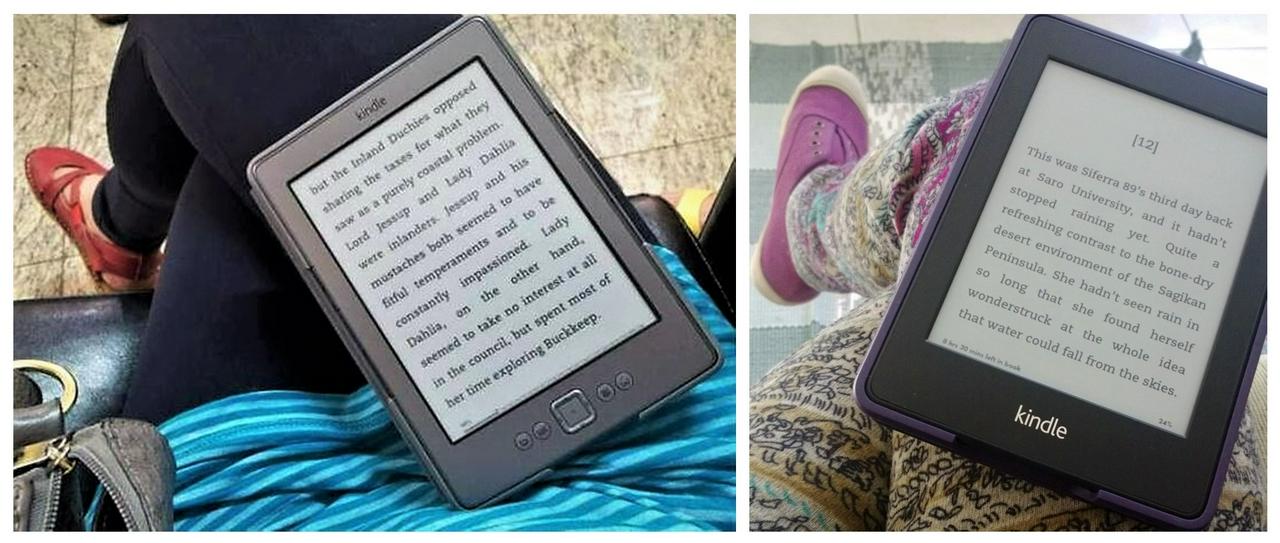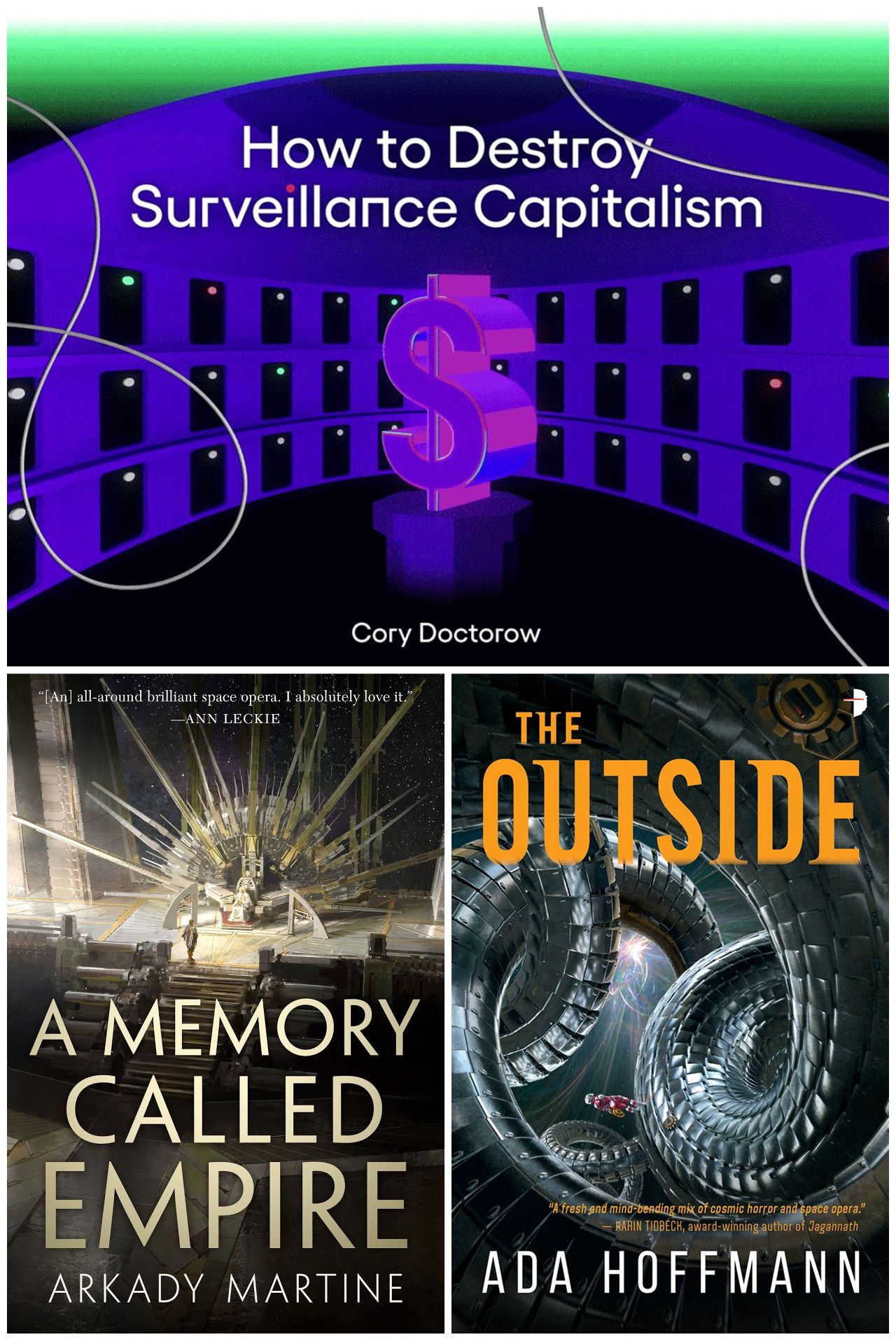The Storygraph: a non-social book tracking site that I'm enjoying
I love to track my reading. I used to have a simple list on Excel, but when I heard about Goodreads back in January 2012 I moved all my tracking to it. That was exactly the same time I started e-reading on my first Kindle, so I found a cool community online of fellow readers. It was great back then! Book nerds talking about books, online book clubs, and reading challenges. I can say Goodreads helped me build up my reading habit. But then… Goodreads was acquired by Amazon in 2013. I was already using Amazon’s Kindle so that that didn’t bother me at the time. I was living in Brazil and Amazon was the only place I could have access to e-books in English (cheaper than buying imported books in English).
After using Kindle e-readers and Goodreads for 9 years, I decided to move away from Amazon’s e-book empire. I upgraded to a Kobo device and started searching for other book tracking sites out there. I took a look into:
Libib
The Storygraph
Library Thing
I excluded sites that were too social-media-oriented. I wasn’t looking for the social media aspect, I just wanted to track my books, set up reading challenges, have a nice interface, and stats. Also, a way to import all my data from Goodreads. I chose The Storygraph!
Why I chose The Storygraph:
- It imports the Goodreads data pretty well. I had to do a few tweaks because some editions were different from the ones I had in Goodreads. That wasn’t the case with the other sites I tried, in which the data was not imported correctly and I would need to spend time figuring out what went wrong and fixing it myself.
- The Storygraph was created by Nadia Odunayo and her team who made the decision to not make it a social media site. There are no notifications, no “like” buttons, no discussions. You can follow other readers if you want to (like me), but nobody knows who follows who, no followers counts, so no social competitive streaks.
- No ads. It’s simple and clean (just like Write.as 💚).
- It brings in-depth stats about the books with nice graphs: per genre, length, dates, mood, pace, and more).
- Up-next feature: you can add 5 books from your “to-read” pile to show up first. I like to have handy a small list of books I want to read next so I can decide quicker, so I loved this feature!
- Customizable challenges: you can create your own reading challenges.
- It’s free to use. But you can support the creators and get extra book recommendations features.
- All data can be exported.

Statistical Data
The Review process has some different characteristics. You can leave a written review and stars as you’d normally do in Goodreads for example, but you can also add statistical data to a book, with things like:
- Mood: adventurous? funny? mysterious? lighthearted? tense? emotional? reflective? etc.
- Pace: Fast, Medium, Slow
- Plot- or character-driven? A mix, Plot-driven, Character-driven.
- Strong character development? Yes, No, It's complicated, N/A.
- Loveable characters? Yes, No, It's complicated.
- Diverse cast of characters? Yes, No, It's complicated, N/A.
- Flaws of characters a main focus? Yes, No, It's complicated, N/A.
- Content warnings: you can add warnings if there are graphic, moderate, or minor levels of certain content (like sexual content, death, violence, gore, etc).
- Rating: the usual 5-star ratings, allowing for half-star and quarter-star ratings.

So for all the books in its database, you can see these statistical data. I particularly like the information about “Pace” and “Mood” which have been helping me choose my next book to read.

You can also perform searches using all those data points.
I’ve been enjoying it because there are no distractions, the focus is on the books. There is an app for mobile which I use daily to track my reading progress.
I’m still thinking about what to do with my Goodreads account. I haven’t decided yet. There are a couple of groups I check out from time to time in Goodreads. And Goodreads is still the biggest book database out there. The Storygraph sometimes doesn’t have accurate information on a series of books and I read that its team is working constantly to update the database.
Should I delete Goodreads? Or leave it as a backup?
One thing is for sure, I’ll stop tracking my reading on Goodreads.
#reading #trackers #TheStorygraph #Goodreads #books
Thoughts? Discuss... if you have a Write.as account or Reply by email
By Noisy Deadlines Minimalist in progress, nerdy, introvert, skeptic. I don't leave without my e-reader.








 It was a difficult month for reading for me! I had to actively remind myself: “Hey, you have books to read, why don't you let go of that shiny screen and grab your e-reader”?
I just felt I was reading slower than I used to. That knee jerk reaction to stop reading and check something on my phone instead showed up a lot. I'll keep on working on my reading focus.
It was a difficult month for reading for me! I had to actively remind myself: “Hey, you have books to read, why don't you let go of that shiny screen and grab your e-reader”?
I just felt I was reading slower than I used to. That knee jerk reaction to stop reading and check something on my phone instead showed up a lot. I'll keep on working on my reading focus.